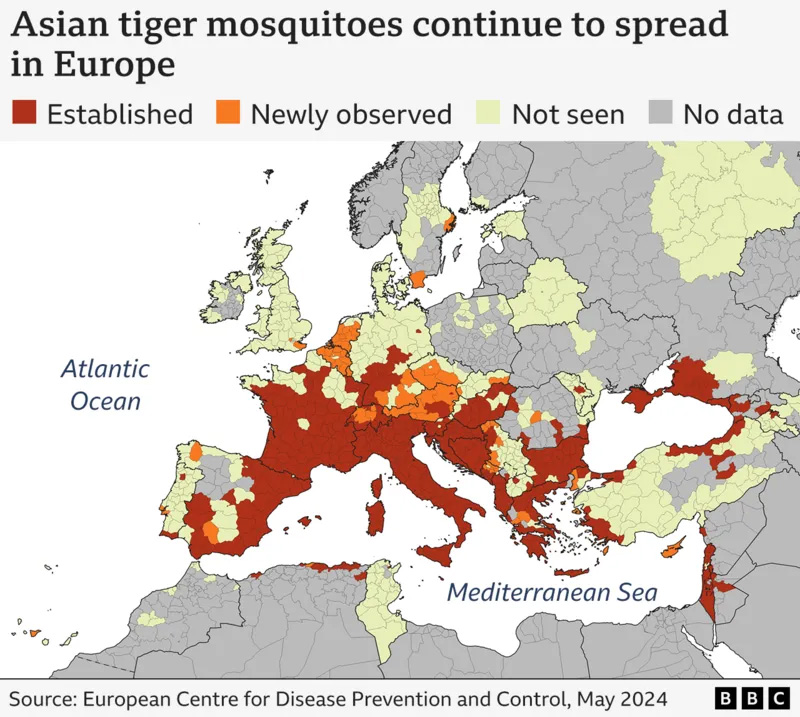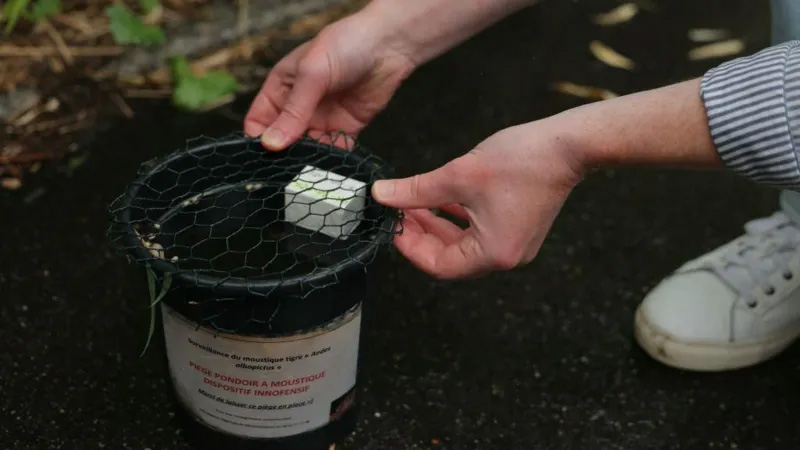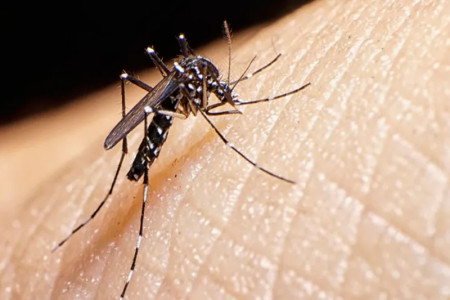Climate change is creating favourable conditions for the tiger mosquito to spread, said the European Centre for Disease Prevention and Control (ECDC).
As far north as Paris, where the Olympic Games will take place at the end of July, authorities have been monitoring and trapping the insect.
The ECDC has warned international travel will further increase the risk of more European outbreaks.
It has advised people to remove stagnant water from gardens or balconies, where mosquitoes can breed, and use repellent and mosquito nets at night.

'Concerning'
Mosquitoes have become a growing threat in Europe over the past two decades.
The Asian tiger mosquito, aedes albopictus, which is thought to be the most invasive species of mosquito in the world, is now spreading across Europe from its southern European 'base camp'.
It has become established in Austria, Bulgaria, Croatia, France, Germany, Greece, Hungary, Italy, Malta, Portugal, Romania, Slovenia and Spain, according to the ECDC.
It has also been recorded in Belgium, Cyprus, Czechia, the Netherlands and Slovakia.
Tiger mosquitoes spread diseases such as dengue fever, chikungunya and Zika virus which, until recently, were typically only present in parts of Africa, Asia and the Americas.
Another mosquito, aedes aegypti, which transmits yellow fever, as well as other diseases, has set up home in Cyprus. Experts say its potential for spreading to other parts of Europe is "concerning" given its preference for biting humans, and its ability to transmit disease.

Dengue starts with flu-like symptoms but can become serious and, in some cases, fatal.
Mass outbreaks have been rising in recent years. Last year eight incidents of multiple infections were recorded in France, four in Italy and two in Spain.
Most European cases are imported - a reflection of the international movement of people and trade, with imported cases soaring to nearly 5,000 last year.
But locally-acquired infections are also rising: 130 people were affected in 2023, up from 71 the year before.
West Nile virus, which is also transmitted by mosquitoes, is now present in more European regions than ever before.
One person was reported to be infected by the virus in southern Spain at the start of March, highlighting how climate conditions are creating a suitable environment for mosquitoes even "very early in the year", the ECDC said.

“Europe is already seeing how climate change is creating more favourable conditions for invasive mosquitos to spread into previously unaffected areas and infect more people with diseases such as dengue," said ECDC director Andrea Ammon.
"Increased international travel from dengue-endemic countries will also increase the risk of imported cases, and inevitably also the risk of local outbreaks."
Ms Ammon advises people take "personal protective measures", adding that "early detection of cases, timely surveillance, further research and awareness-raising activities are paramount in those areas in Europe most at risk”.

Dengue fever is endemic in more than 100 countries around the world, according to the World Health Organization (WHO), with more than six million cases and 7,000 deaths reported last year.
The highest number of cases occur in Bangladesh, Malaysia, Thailand and Vietnam.
Malaria is the most deadly mosquito-borne disease on the planet. It spreads to people through the bites of infected female mosquitoes called anopheles, which have also been found in Europe.
There are concerns incidents of malaria could also spike on the continent in the future, if conditions are right.
By Philippa Roxby


